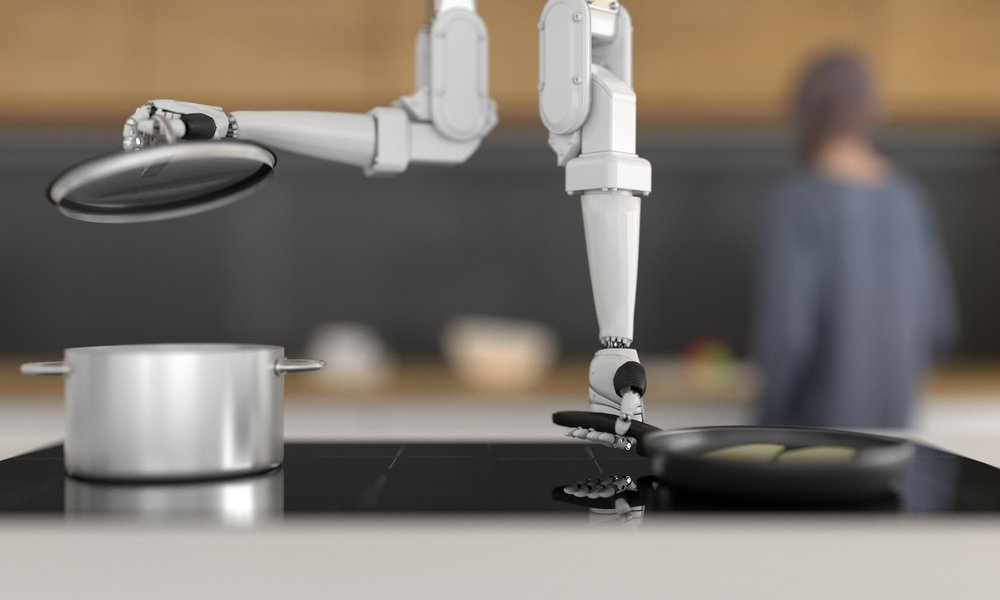Expecting Ourselves: Embodied Prediction and the Construction of Conscious Experience
31 Jan 2017
January 2017 marks the first month, here at the University of Edinburgh, of a new 4-year project entitled “Expecting Ourselves: Embodied Prediction and the Construction of Conscious Experience”. The local project team, which will slowly assemble here over the next few months, involves myself (Andy Clark, philosopher and Principal Investigator), Dr David Carmel (psychology), two PhD students (George Deane and Kathryn Nave), and a post-doctoral fellow (Dr Sam Wilkinson). We were awarded an ERC Advanced Grant to carry out this work – and we feel very lucky to have received this support in what, thanks to creeping Brexit, could be one of the last few years such awards are freely available to UK scholars.
One of the wonderful things about these awards is that they are specifically designed to support ‘high-risk, high-reward’ projects. And it’s hard to imagine anything higher risk, or more potentially important, than adding new pieces to the emerging scientific and philosophical mosaic that targets the mystery of conscious experience itself.
Our project aims to bring one relatively new tool to bear on this perplexing puzzle. That tool is the emerging image of the brain as a multi-level prediction machine. According to such accounts, incoming sensory signals are processed relative to a set of neutrally supported predictions about what should be happening at our sensory peripheries right now. These, mostly unconscious, predictions prepare us to deal rapidly and efficiently with the stream of signals coming from the world. If the sensory signal is as expected, we can see and hear the things that we have already started to prepare to see and hear, or launch the behaviours we have already started to organize. But if all is not as expected, then a distinctive signal results: a so-called ‘prediction-error’ signal. These signals, calculated in every area and at every level of neuronal processing, highlight what we got wrong, and invite the brain to try again (armed with this new information concerning current errors). Brains like this are forever trying to guess the shape and evolution of the current sensory signal, using stored knowledge about the world.
Human experience, this suggests, always involves a delicate combination of what the brain (on the basis of what we know) expects and what the current waves of sensory evidence suggest. This fits well with daily experience – we often seem to ‘see’ what we expect to see, even when the actual sensory evidence is less than compelling. And we easily see and hear that which we know well, even when conditions are noisy and bad – for example, when someone speaks our name in a noisy party, when we effortlessly discern ghostly faces in the shifting clouds, or when we hear a familiar song played on a bad radio receiver. In all these cases, the brain uses stored knowledge to drive rich predictions about the sensory array: predictions that seek to separate the signal from the noise, adding to, and subtracting from, the sensory flux so as to reveal (when all goes well) what really matters in the wider world.
By seeing experience as a construct that merges prediction and sensory evidence, we begin to see how minds like ours reveal a world of human-relevant stuff. For the patterns of sensory stimulation that we most strongly predict will be the patterns that matter most to us as both as humans (with distinctively human needs and capacities) and as individuals – individuals with different histories and interests. The world revealed to the predictive brain is thus a world already permeated with human mattering.
Our project is split into three sub-projects, each of which applies this vision to different aspects of the puzzle of conscious experience.
The first sub-project looks at the links between prediction, experience, and embodied action. The key idea to be explored is that predictions impact conscious experience in ways that are intimately bound up not just with our own perceptual history but also with ongoing motor planning and activity.
The second sub-project targets the role of inward-looking (‘interoceptive’) predictions on experience – these are predictions of our own changing physiological states. The idea to be explored, both philosophically and experimentally (here working closely with Professor Anil Seth at the University of Sussex) is that much of the distinctive ‘feel’ of conscious experience may be due to the influence of interoceptive information on the selection and construction of the winning predictive model.
The final sub-project addresses more specifically human forms of conscious experience, including the kinds of reflective self-awareness required to notice and discuss our own basic (‘qualitative’) conscious states. The here is that more advanced (reflective, self-aware, agentive) forms of experience arise when the neural prediction machinery is turned upon itself – when we ourselves appear as elements in our own predictive world models. Hence the title of the overall project ‘Expecting Ourselves’ – a phrase suggested to us by Professor Daniel Dennett, and used with his permission. For this part of the project, we will be working closely with Professor Andreas Roepstorff (Interacting Minds Centre, Aarhus University, Denmark) and Professor Karl Friston (Wellcome Trust Centre for Neuroimaging, University College London).
Putting the three threads back together delivers a new perspective on conscious experience itself. Basic conscious experience, we hope to show, emerges when and only when predictive brains enable embodied, interoceptively-informed agents to survey the space of opportunities for action. Reflective self-consciousness arises when such agents model themselves and others so as to enable increasingly complex forms of social interaction.
Such is our ambitious goal! Along the way, we will use new experimental probes to bring philosophical work on the nature, structure, and origins of conscious experience into close and experimentally informed contact with neuroscientific conjectures concerning the predictive brain.
If you’d like to be kept informed of events, workshops and opportunities relating to this project, drop a line to me ([email protected]) or visit our website, where information about forthcoming events will be posted as it becomes available.
Professor Andy Clark FBA, FRSE received an Advanced Grant from the European Research Council in 2016 for a four-year project (start date Jan 2017) entitled ‘Expecting Ourselves: Embodied Prediction and the Construction of Conscious Experience’.


